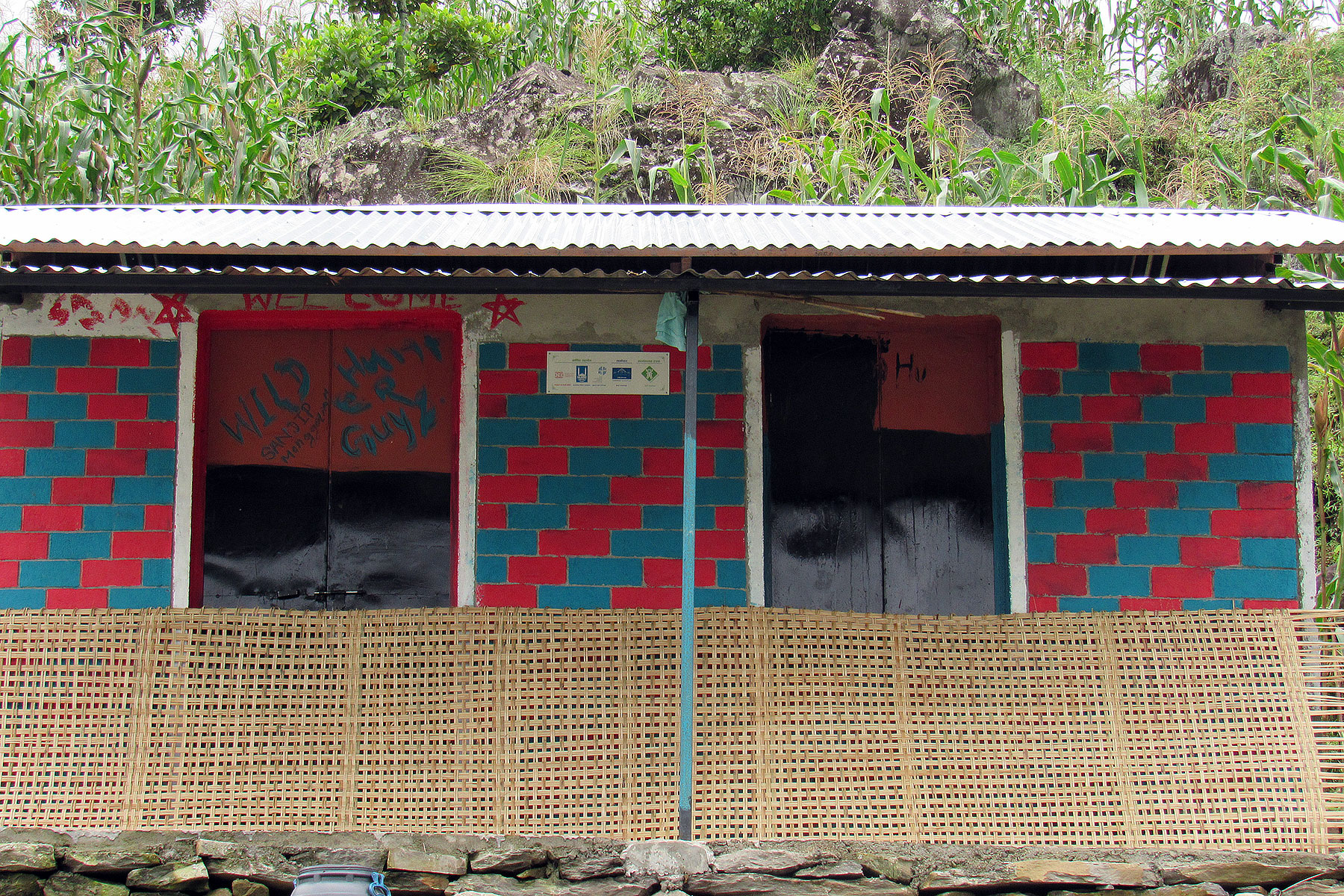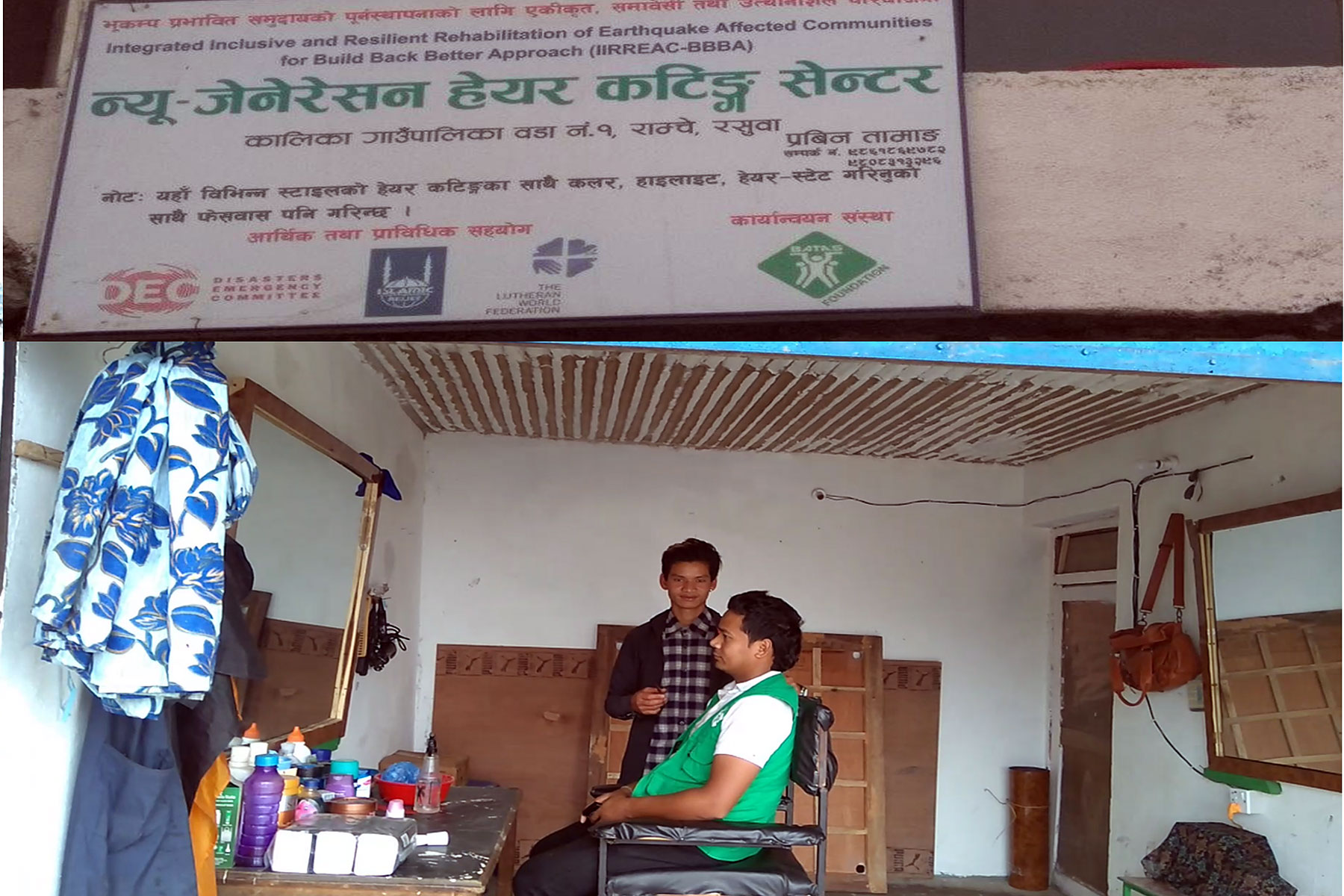Nepalese families are benefiting from earthquake-resilient buildings and sustainable livelihoods thanks to a joint project between Islamic Relief Worldwide and the Lutheran World Federation (LWF).
Women in Nepal’s Langbu village have gained both privacy and dignity with the public bathing cubicles built collaboratively by the LWF Nepal and Islamic Relief, following the devastating earthquake in 2015.
“With the previous public tap common for men and women, we could rarely bathe [properly]. These [new] cubicles give us the opportunity to take a full bath whenever we would like,” said Meena Ghale.
For Maina BK, the washrooms have done more. “The women in my village feel their dignity has increased,” she added.
Thanks to the interfaith program Build Back Better, launched by the LWF and Islamic Relief to rebuild community resilience after the earthquake, it is not only Ghale and Maina whose lives have improved. People with disabilities are among the many local people who now have earthquake-resilient houses, and skills training has created income-generating opportunities for many families.

The LWF and Islamic Relief began their collaborative efforts in Nepal immediately after the earthquake which killed 9,000 people, injured 22,000 and caused widespread damage. They focused on the rural municipalities of Naukunda and Kalika in the Himalayan district of Rasuwa, the smallest of the 16 districts in the region, with a population of 43,000.
By the end of last year, 151 houses had been constructed under the initiative, which follows strict government guidelines under the supervision of qualified engineers and technical staff.
Gardening, tailoring, hairdressing and masonry
The project, which has been praised by both rural municipalities, supported 30 beneficiaries in developing vegetable gardens, another 21 people trained as tailors, hairdressers, plumbers and mobile phone repairers, and 120 persons trained as masons.
Five irrigation and six drinking water supply schemes were also set up as well as 2,042 temporary shelters, 241 inclusive toilets, four school toilets and two collection centers. Under the scheme, the two municipalities established emergency funds and capacity was increased for 18 community-based and six school-based disaster management task forces.
Dr Prabin Manandhar, LWF Nepal country director, noted that the project was well accepted by local people in a district inhabited by Buddhists and Hindus. “Interfaith harmony lies at the very foundation of human development, and it is part and parcel of the prevention of conflicts, resolution of conflict, and building peace for long-term development,” he emphasised.
Long-term social and economic capital
By increasing resilience, the project has enhanced the social and economic capital in the communities. It focused on disaster risk reduction, promoting community recovery by ensuring compliance and monitoring. Gender equality and social inclusion were key aspects, Manandhar added.
Islamic Relief’s head of mission in Nepal, Talha Jamal, continued: “Vulnerable groups such as people with disabilities, older people, and women often face particular barriers. Inclusion was at the very heart of this project, as we aimed to ensure no one was left behind and all were able to live their lives in dignity and fulfil their potential. This ensured the scheme is delivering maximum impact for the community as a whole.”
In the remote rural municipalities of the mountainous and hard-to-reach district, promoting disaster risk reduction in the construction of homes, temporary shelters and other infrastructure projects has lowered the risk for future disasters.
Organising and equipping the community with disaster preparedness skills, equipment and emergency funds has also strengthened local capacity to respond to similar disasters in the future. Practical training of masons, farmers and other trades people has helped to develop the kind of resilience the communities need in the long term.
A model for future disaster response
The communities’ collaboration with the authorities has increased local ownership of the project, while the development of skills to maintain the infrastructure and advocacy capacity have helped to ensure its sustainability.

In addition, there were initiatives begun by the locals themselves such as aicho-paicho (lending material or money to each other) and parma (helping neighbors) during the recovery phase, which increased trust, built strong relationships and helped in the psychosocial recovery.
“We are encouraging the model of the project supported by LWF Nepal and Islamic Relief Worldwide to other development partners. The community felt more powerful, capacitated and resilient after the project support,” said Nurbu Syangbo Ghale, chairperson of Naukunda Rural Municipality.
“We have enhanced skills to deal with any future disasters in our area. Moreover, collaboration of two faith-based organizations to support completely different faith-based communities is praiseworthy,” Ghale added.
With shared values and common vision to tackle poverty and suffering worldwide, Islamic Relief Worldwide and the Lutheran World Federation forged the world’s first official cooperation between a global Islamic and a global Christian humanitarian organisation in 2014.
*A version of this article originally appeared on the LWF website.










